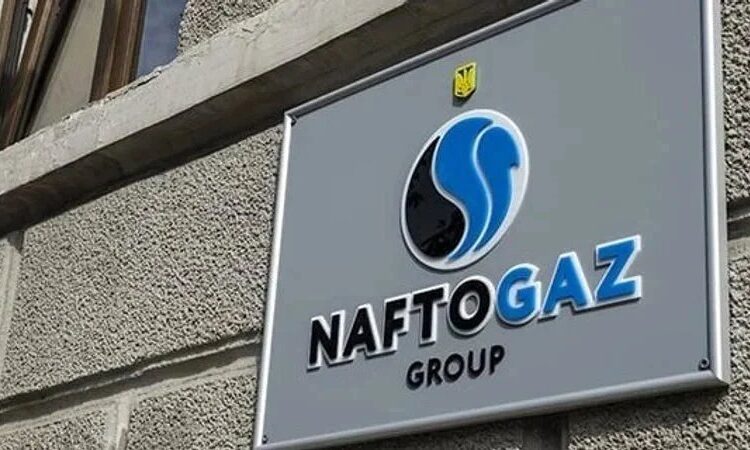
As Ukraine prepares to become a member of the European Union, it is developing its own proposal for continental energy security.
The need to revise continental energy policy has never been more urgent than after February 24, 2022. Never before has a single country’s energy system faced such challenges as Ukraine’s in the fall and winter of 2022/2023.
The experience of the last autumn-winter period has become a system of actions for the current one. During the “heating off-season,” we analyzed the nature of hits to energy facilities to optimize their physical protection. We reinforced mobile fire teams. We have stockpiled spare parts for prompt repairs and purchased diesel generators to ensure autonomous operation of compressor stations for 36-72 hours in case of blackout. This is the foundation of energy security at the level of survival. Having ensured it, we need to move on.
Nothing strengthens a state like self-sufficiency. It is not always possible to achieve it in everything, but, in the energy sector, Ukraine is definitely capable of doing so. Our main task was to increase gas production to go through the 2023/2024 heating season without imports for the first time since independence. To do this, we had to ensure a 7% increase, which is quite a challenge in a time of war, given that some of the towers were within howitzer range of the front line at certain points. However, we did it. In 2023, the well drilling rate was the highest in the last 15 years. At the end of September, Naftogaz pumped the government’s target volume of 14.7 bcm into storage facilities a month ahead of schedule. In November, reserves reached 16+ bcm. And we continue to produce further.
Kyiv should move away from the role of energy transit to Europe
Getting through this winter using only our own gas will have a significant economic and psychological effect. First, we will finally reverse the situation when Ukraine has always imported gas. Second, by increasing production this year, it will be easier to continue the upward trend next year. Thirdly, by providing gas for ourselves, we will demonstrate the industry’s potential to our partners – and attracting technology and investment is essential to start export production.
In the past, Russia has spent a lot of effort creating an image of Ukraine as an energy-dependent country. The fact that we are able not only to achieve gas self-sufficiency, but also to replace a part of Russian supplies to Europe with our own gas, hits the Kremlin’s ambitions as hard as the lack of success on the battlefield. For example, we can start with Moldova, with its relatively small needs.
In the future, Ukraine should move away from the role of an energy transit country to Europe and take on the role of a European energy hub, a “power bank.” For this purpose, we have everything we need: 31 billion cubic meters of storage facilities (the largest in the EU, almost a third of the EU’s total capacity), a developed gas transportation system, and more than 100 billion cubic meters of annual output capacity to European countries. Most importantly, Europe’s second-largest gas deposits, the development of which will end the European Union’s critical dependence on external suppliers. After all, Ukraine is already seen as a future EU member that shares its security, climate, and energy goals and is ready to contribute to the continent’s strategic autonomy. Thus, this year, European traders have already entrusted us with storing 2.5 billion cubic meters of gas in their reserves.
Europe has been living in an “energy emergency” for almost two years. Ways to diversify gas supplies are being urgently sought, LNG terminals are being built, and interconnectors are being launched. The success in abandoning Russian hydrocarbons during this time is tangible, given that the Kremlin has been hooking European countries on its needle for decades. However, the EU still imports Russian gas, albeit in far from pre-war volumes.
Any continued presence of Russian energy on the European market is like an intruder’s boot sticking in the door. As soon as the circumstances are right, the Kremlin will again use it as a weapon, undermining unity within the EU. Therefore, the EU needs to seize the moment and finally eliminate its dependence on Russia by strengthening its own energy security system with the help of Ukraine.
The proposed “power bank” concept is also good because it can be scaled up. After all, natural gas, despite its current importance, is only one element of the energy security architecture. Ukraine also has enough potential in renewable energy sources, synthetic gases (Naftogaz is considering its pilot projects in these areas), and nuclear generation, which is also carbon-free.
The united Europe is the world’s second-largest economy, so global stability depends on stability on the Old Continent. If the EU achieves strategic autonomy in energy matters, it will reach a new level of security and development.
This article was published in the special issue of NV magazine, “The World Ahead 2024” under the exclusive license of The Economist. Reproduction is prohibited.
We’re bringing the voice of Ukraine to the world. Support us with a one-time donation, or become a Patron!
Read the original article on The New Voice of Ukraine





